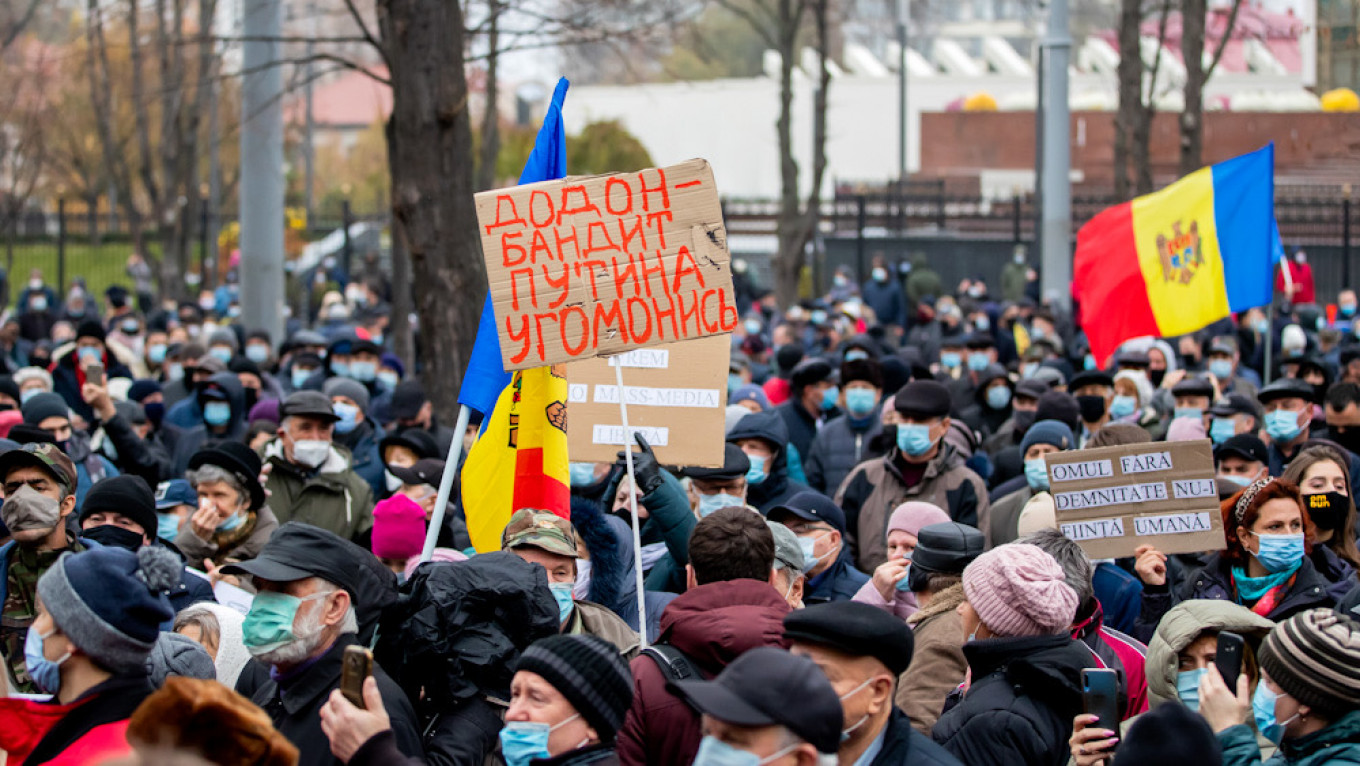In a year dominated by the coronavirus pandemic, some of the largest and most protracted protests in post-Soviet history also grabbed headlines.
People took to the streets to protest issues including electoral fraud, corruption and territorial disputes. Gathering despite government-imposed public assembly restrictions, protesters across the region faced off against police — with thousands being injured or jailed as a result.
Here is a look back at movements that shook the post-Soviet space this year:
Russia
Khabarovsk protests: July 2020 — present
At least 10,000 protesters marched through the Russian Far Eastern city of Khabarovsk on July 11, in the first of over 150 demonstrations in support of the ousted governor Sergei Furgal.
Furgal was arrested days before the first rally for allegedly ordering the murders of several businessmen 15 years ago and has been in custody in Moscow since then. His supporters believe the charges are politically motivated and an attempt to reclaim control of the region that the ruling United Russia party lost with Furgal’s election victory in 2018.
President Vladimir Putin appointed Mikhail Degtyarev from the nationalist LDPR as the new governor of the region, but anti-Kremlin protests drawing thousands of people continued throughout July and August. Small protests are still taking place.
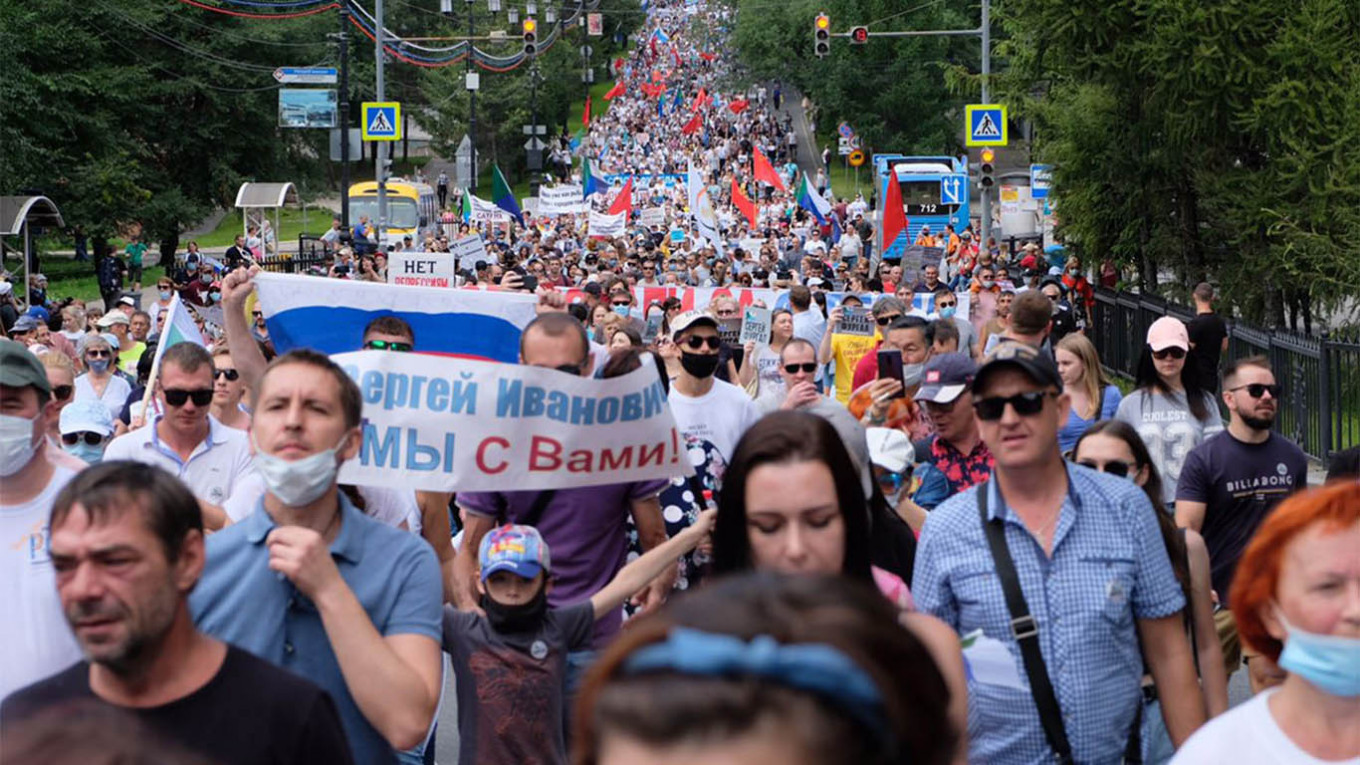
Protests against constitutional amendments: March, July 2020
Russian activists took to the streets after the nation backed constitutional changes that pave the way to extend President Vladimir Putin’s rule until 2036, and enshrine populist and conservative measures in the Constitution.
Small groups of protesters had gathered across Russia’s regions at the height of the first wave of the pandemic in March, with Siberia’s Krasnoyarsk witnessing the largest crowd of 250 protesters.
In July, after the yes vote and as the virus temporarily loosened its grip, up to a thousand people in both Moscow and St. Petersburg protested the changes championed by Putin. At least 140 were arrested.
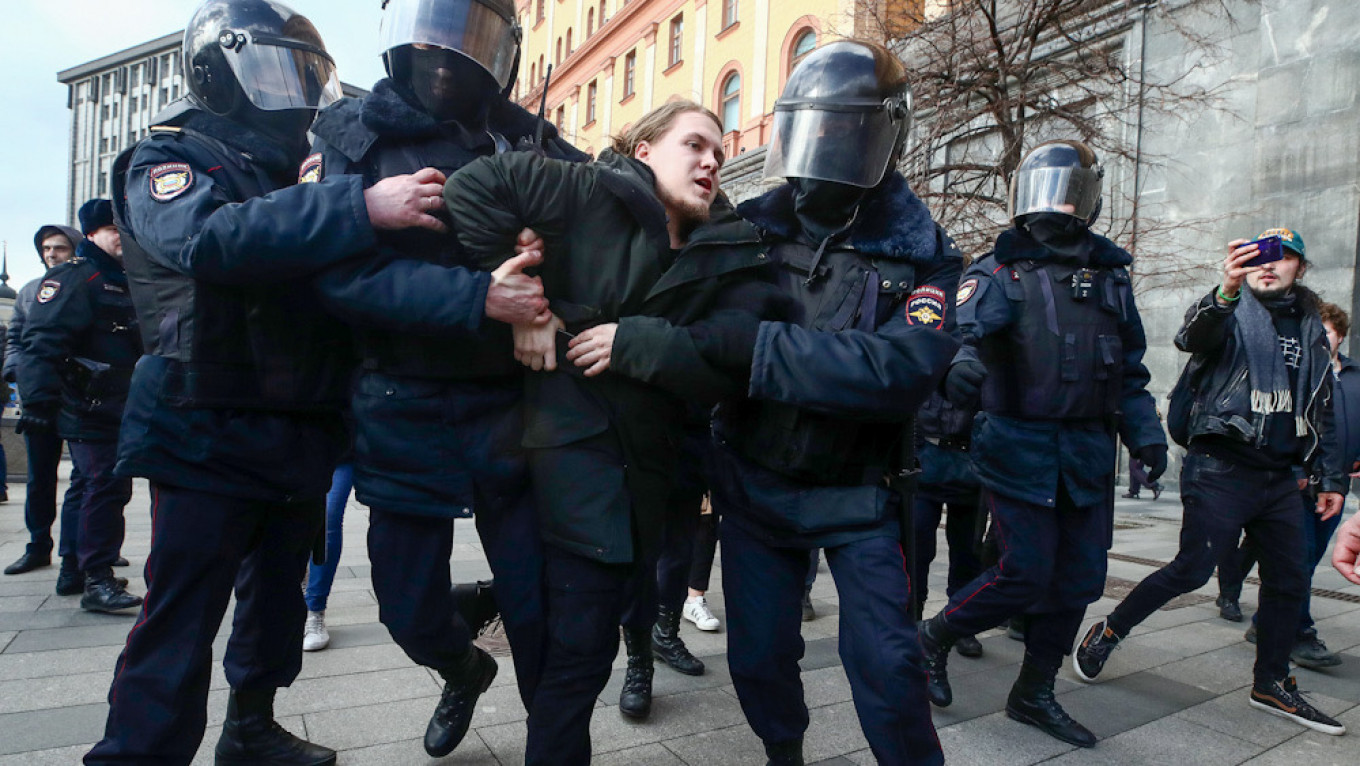
The Kushtau Hill defense: August 2020
Clashes broke out at Kushtau Hill in Russia’s central republic of Bashkortostan in early August when the Bashkir Soda Company (BSK) began to mine limestone from a site considered to be sacred by locals.
Hundreds of protesters camped out at the foothills of Kushtau for days and were joined by thousands of others on the critical protest days. Around 50 protesters were detained and their encampment destroyed following clashes with BSK security contractors and riot police — the event was captured on a viral video and sparked widespread public outrage.
Regional authorities intervened to halt mining and the government claimed ownership of BSK. Many of the protesters remain in detention and face jail terms.

Belarus: Anti-government protests: May 2020 — present
Belarus has been gripped for months by historic anti-government demonstrations that erupted after Aug. 9 presidential elections in which Lukashenko claimed a sixth term in office with 80% of the votes.
His opponents claim the polls were rigged and that political novice Svetlana Tikhanovskaya, who ran in place of her jailed husband. was the true winner.
Tikhanovskaya has fled the country, but the largest protest movement in Belarusian history lives on despite a crackdown.
At least 30,000 people have been arrested, over 1,300 injured, and at least five killed since the unrest began seven months ago.
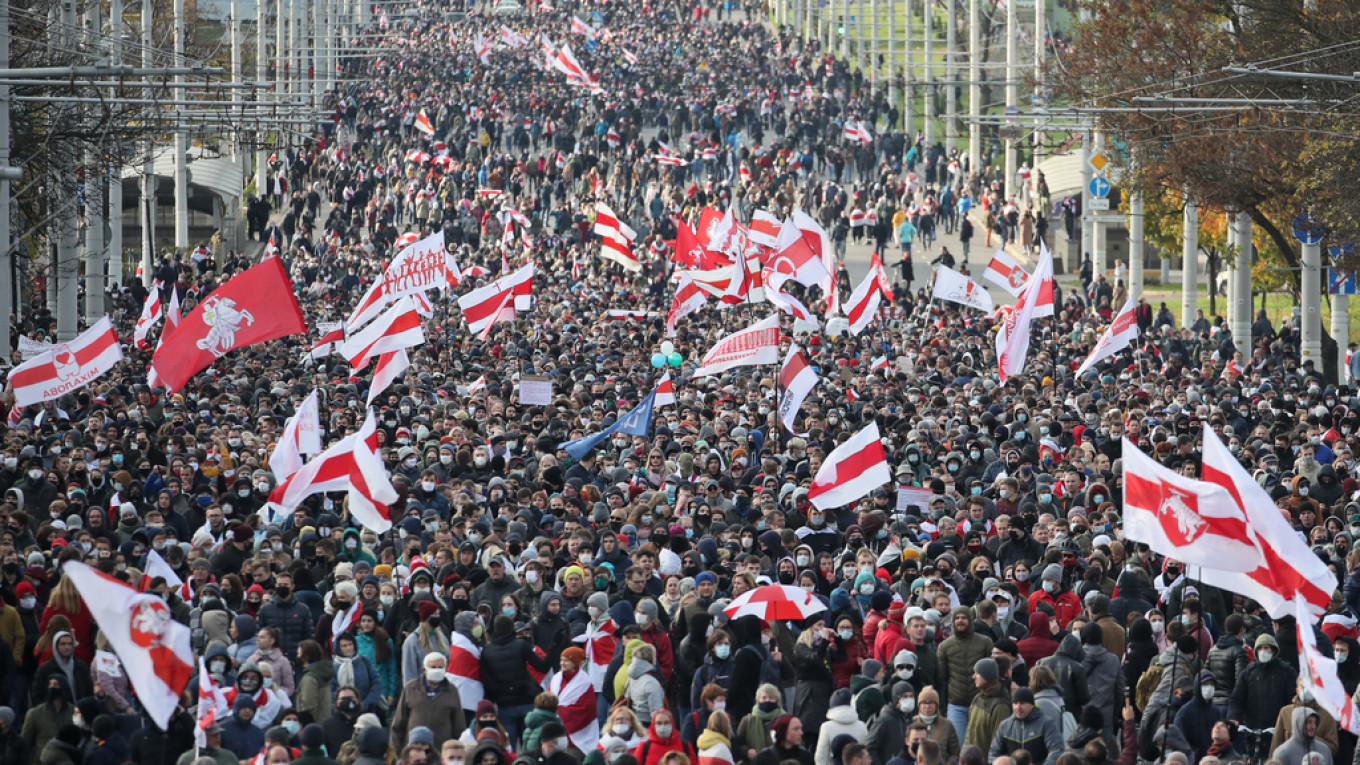
Protests spark war between Armenia and Azerbaijan in Nagorno-Karabakh: July 2020, November 2020 – present
When clashes first broke out between Armenian and Azerbaijani forces stationed in the disputed Nagorno-Karabakh region in July, tens of thousands protested in the Azerbaijani capital Baku to demand the government wage war against Armenia.
While the conflict over the mountainous region had been simmering for almost three decades, the six-week war that erupted in September ended in defeat for Armenia and a change in the regional status quo in Azerbaijan’s favor.
Armenian Prime Minister Nikol Pashinyan faces an uncertain future after signing a Russia-brokered peace deal — angry protests erupted in Yerevan immediately after he announced the peace deal on Facebook, with hundreds of protestors storming government buildings. Protests against Pashinyan continue amid his repeated refusal to resign. Over 300 people have been detained since demonstrations began.
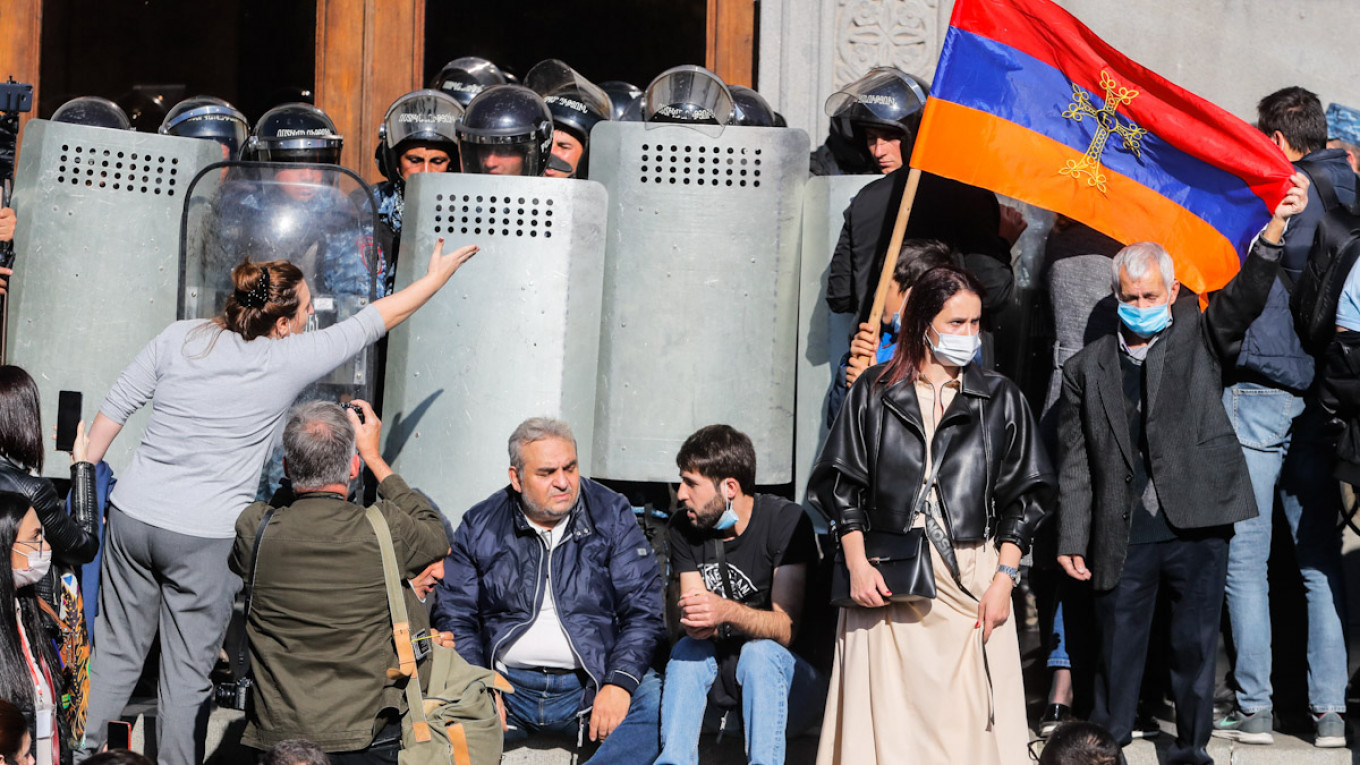
Revolution in Kyrgyzstan: October 2020
Thousands of people took to the streets of Kyrgyzstan’s capital Bishkek on Oct. 5 to protest an election marred by vote-buying accusations — this marked the beginning of the third revolution in the ex-Soviet republic since 2005. Protesters stormed government buildings and freed jailed ex-president Almazbek Atambayev. Violent clashes with the police occurred throughout the night.
Post-election clashes raged for the next two weeks, leading to the cancellation of election results, the resignation of President Sooronbay Jeenbekov and the appointment of populist figurehead Sadyr Japarov as the country’s new president. Over 1,000 people were injured and one protester was killed in the two weeks of political chaos.
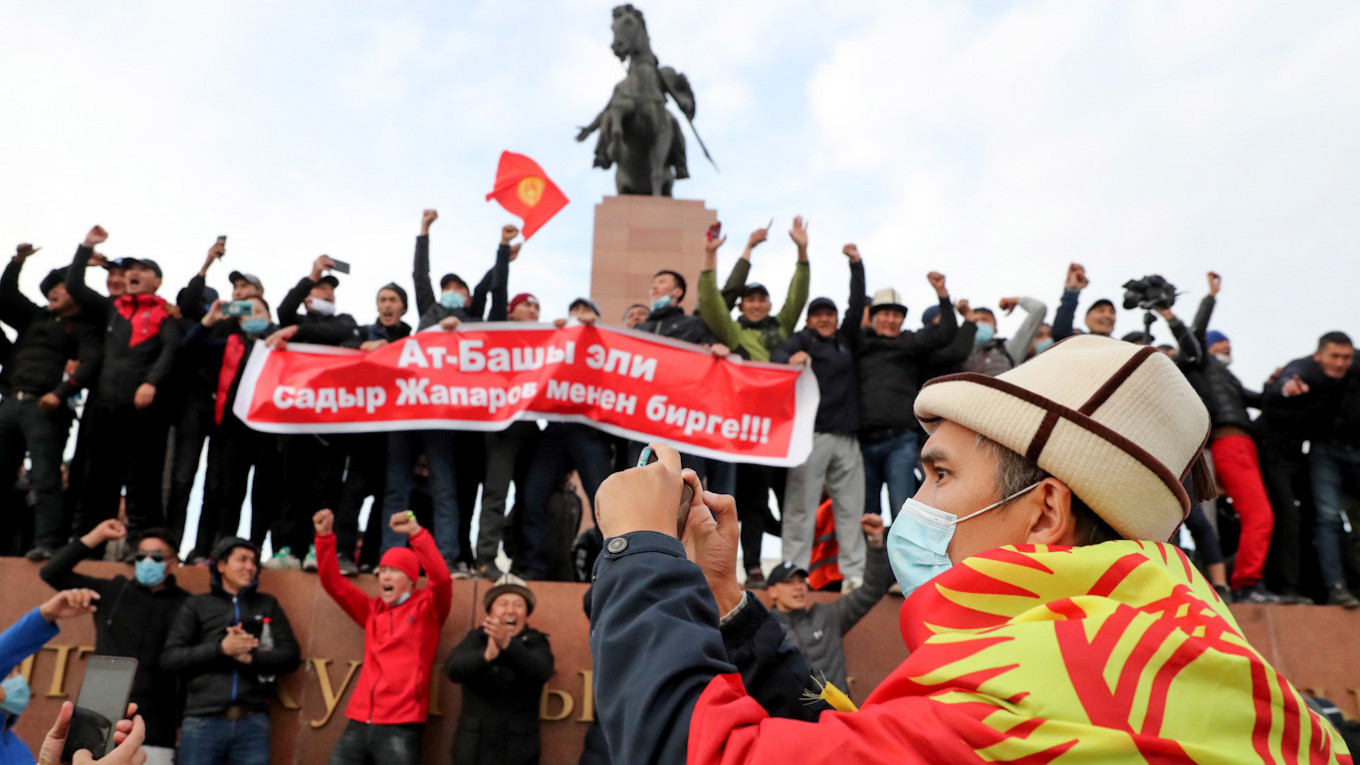
Pro-Europe protests in Moldova: December 2020
Moldova’s pro-European president-elect Maia Sandu faces fierce opposition from the incumbent pro-Russian Igor Dodon and his Socialist Party despite a unanimous election victory.
Moldovan lawmakers passed a bill that transferred control of the country’s intelligence agency from the president to parliament on Dec. 3 — just weeks before Sandu’s scheduled takeover. Sandu sees the measure as an attempt to reduce her presidential powers and grant more influence to the parliament controlled by Dodon.
At least 5,000 people protested outside the parliament in Chisinau on the day the bill was adopted and over 20,000 attended the pro-Sandu demonstration the following weekend demanding fresh parliamentary elections.
